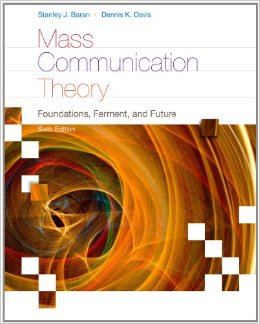Mass Communication Theory Foundations, Ferment, and Future Review of Chaper 2: FOUR ERAS OF MEDIA THEORY We have identified four distinct eras in the development of mass communication theories, beginning with the origin of media theory in the nineteenth century and ending with the emergence of an array of contemporary perspectives. THE ERA OF MASS SOCIETY AND MASS CULTURE The era of mass society theory is characterized by overinflated fears of media’s influence on “average” people and overly optimistic views of their ability to bring about social good. Powerful social and cultural elites, who saw the traditional social order that was serving them so well undermined by popular media content, were the primary advocates of the former view. Urban elites—the new capitalists whose power was increasingly based on industrialization and urbanization—viewed technology, including the mass media, as facilitating control over the physical environment, expanding human productivity, and generating new forms […]
Reporting in Print Media
Reporting: Reporting is just a genre of writing, alongside essays and stories, and bloggers most certainly fall into that genre.” When they talk about reporting on a show like Frontline, they mean the process a reporter goes through. 1. Interviews, research. 2. Assemble a story. 3. Fact-checking and editing. 4. Publishing. Most bloggers aren’t doing this whole thing. Our process is different, and I’d argue no less rigorous, just more distributed, and step 2 is something everyone does for themselves. Key point in last night’s piece — sources are part of the reporting process, and more and more, the sources are becoming bloggers. GENERAL REPORTING Reporting means gathering facts and presenting them objectively with ail news writing skills. It is an active, creative, long and tough process of news, gathering, ideas and opinion collection, fact finding in order to serve the general public by informing them and enabling them to […]
